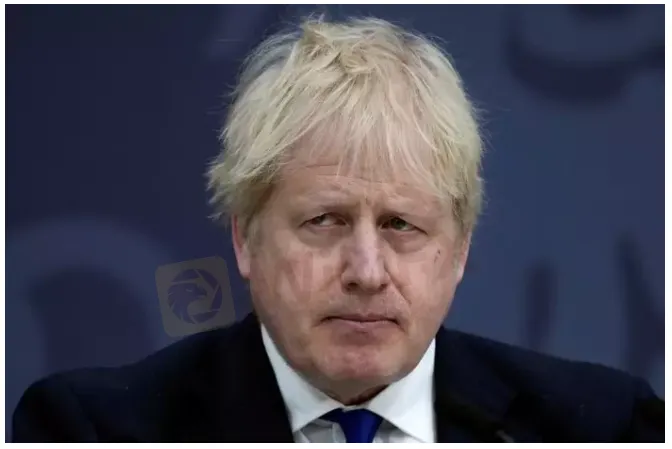简体中文
繁體中文
English
Pусский
日本語
ภาษาไทย
Tiếng Việt
Bahasa Indonesia
Español
हिन्दी
Filippiiniläinen
Français
Deutsch
Português
Türkçe
한국어
العربية
British PM Johnson signals visa flexibility with India to win trade deal
Abstract:British Prime Minister Boris Johnson indicated he was ready to offer more visas to India in return for this year clinching a free-trade deal that could boost annual bilateral trade by billions of pounds.

Speaking on the plane on his way to the worlds second-most populous country, Johnson signalled he was ready to be more accommodating on an issue that could have stalled the talks.
“I have always been in favour of talented people coming to this country,” Johnson told reporters. “We are short to the tune of hundreds of thousands of people in our economy and we need to have a progressive approach and we will.”
Britain has made getting a trade deal with India one of its post-Brexit priorities as ministers, free from the European Unions common trade policy, look to gear policy towards faster-growing economies around the Indo-Pacific region.
India wants greater opportunities for Indians to live and work in Britain. Any trade deal will likely be contingent on relaxing rules and lowering of fees for Indian students and professionals going to the country.India and former colonial power Britain already share strong trade ties, and more than a million people of Indian origin live in Britain after decades of migration.
Britain wants to tap into the wealth of Indias middle classes and their appetite for premium British products such as Scotch whisky. They also hope that India can become a customer of its green technology and that service trade can also be strengthened.Britain has said the trade deal could almost double British exports to India, and by 2035 boost total trade by 28 billion pounds ($38 billion) per year. Total trade in 2019 was worth 23 billion pounds, according to British statistics.

Disclaimer:
The views in this article only represent the author's personal views, and do not constitute investment advice on this platform. This platform does not guarantee the accuracy, completeness and timeliness of the information in the article, and will not be liable for any loss caused by the use of or reliance on the information in the article.
Read more

Forex Brokers vs. Crypto Exchanges: Which Is Safer for Traders?
The world of trading offers two major platforms: forex brokers and cryptocurrency exchanges. Both provide opportunities, but they also come with risks. Traders often wonder which is the safer option. While some lean towards traditional forex brokers, others trust the decentralised nature of crypto exchanges. Let us know if you are #TeamForex or #TeamCrypto!

The Yuan’s Struggle: How China Plans to Protect Its Economy
China introduced new measures on Monday to support its weakening currency, the yuan, amidst mounting economic and political pressures. The government announced plans to boost foreign exchange reserves in Hong Kong and ease borrowing restrictions for companies to improve capital flows.

XTB Secures UAE and Indonesia Licenses, Expands in 2025
XTB accelerates global growth in 2025 by securing key licenses in the UAE and Indonesia, paving the way for broader services and innovative offerings worldwide.

Forex Market Outlook 2025: Institutional Predictions and Trend Analysis
In 2025, the global forex market faces a range of complex macroeconomic and geopolitical challenges. From shifts in U.S. monetary policy to structural issues in Europe’s economy and potential volatility in emerging markets, financial institutions worldwide are offering forecasts for the year ahead. This article compiles insights from leading organizations to explore potential trends and opportunities in the forex industry for 2025.
WikiFX Broker
Latest News
Wolf Capital Exposed: The $9.4M Crypto Ponzi Scheme that Lured Thousands with False Promises
Confirmed! US December non-farm payroll exceeded expectations
Spain plans 100% tax for homes bought by non-EU residents
90 Days, Rs.1800 Cr. Saved! MHA Reveals
The Yuan’s Struggle: How China Plans to Protect Its Economy
LiteForex Celebrates Its 20th Anniversary with a $1,000,000 Challenge
400 Foreign Nationals Arrested in Crypto Scam Raid in Manila
Singapore Blocks Polymarket Access, Following U.S. and France
OneZero Collaborates with Ladies Professional Golf Association (LPGA)
Housewives Scammed of Over RM1 Million in Gold Investment Fraud
Currency Calculator







